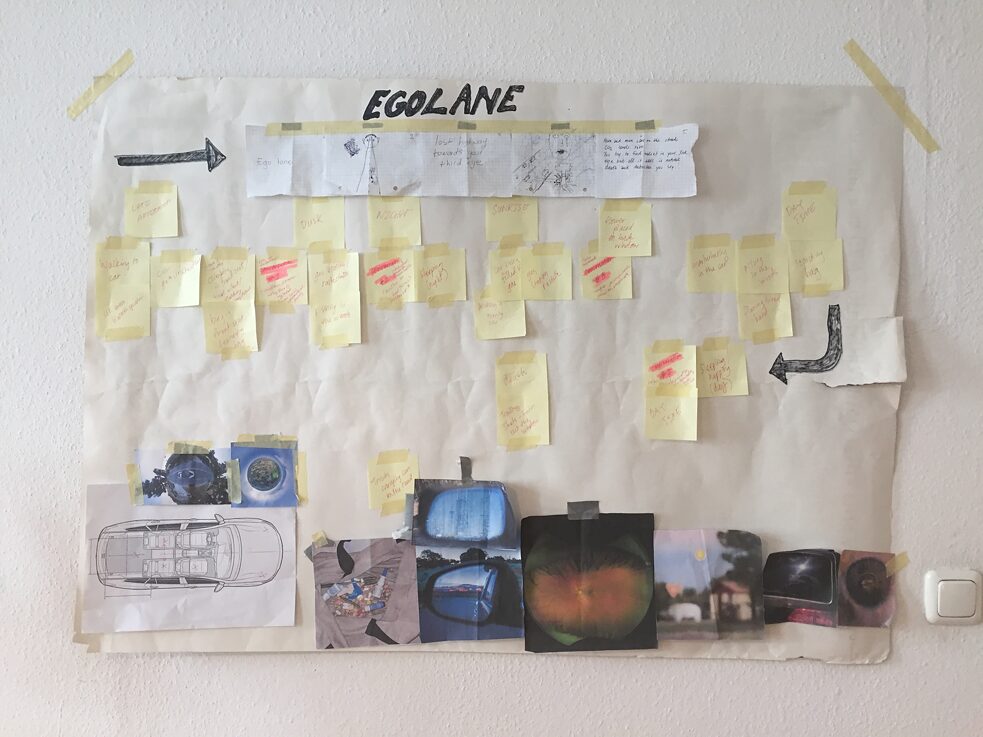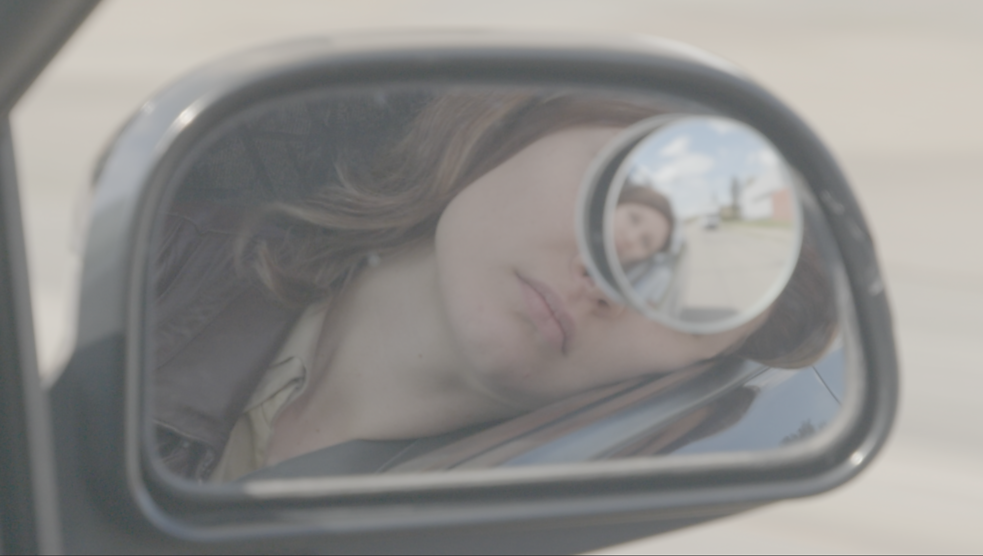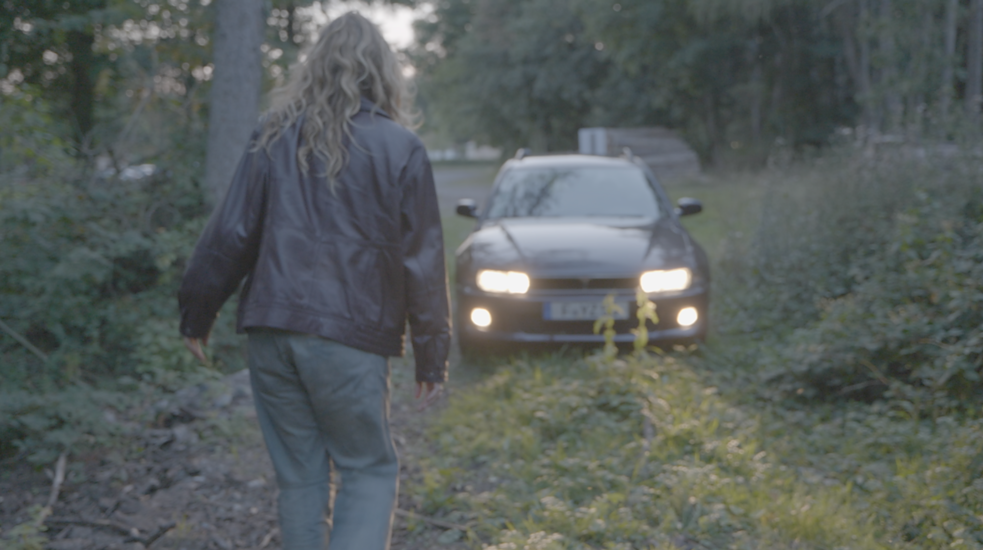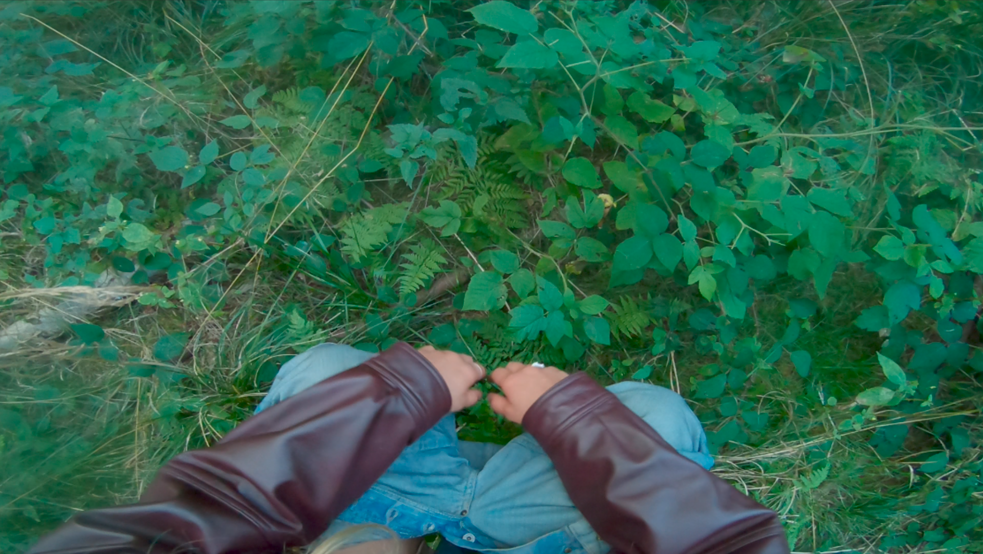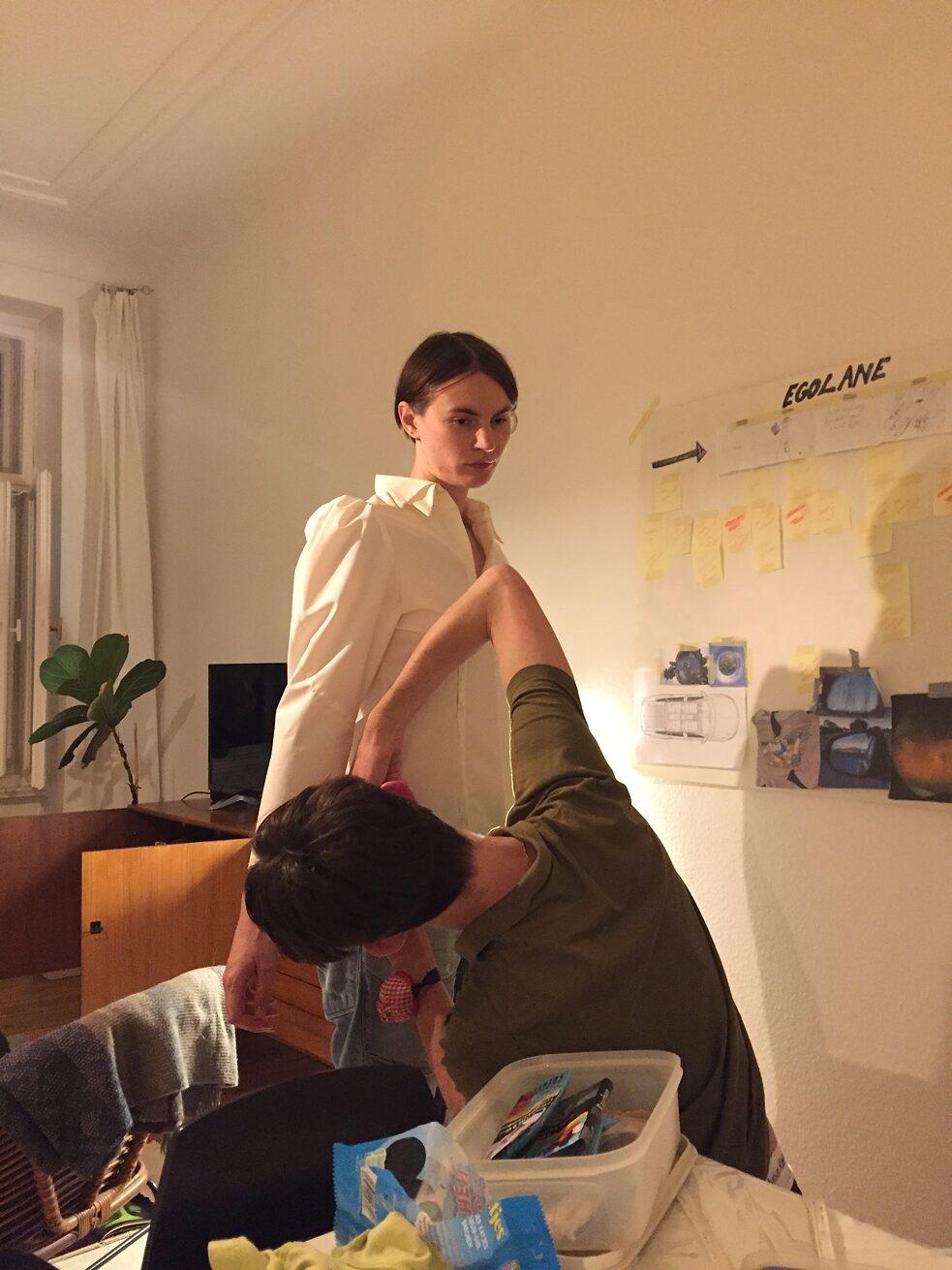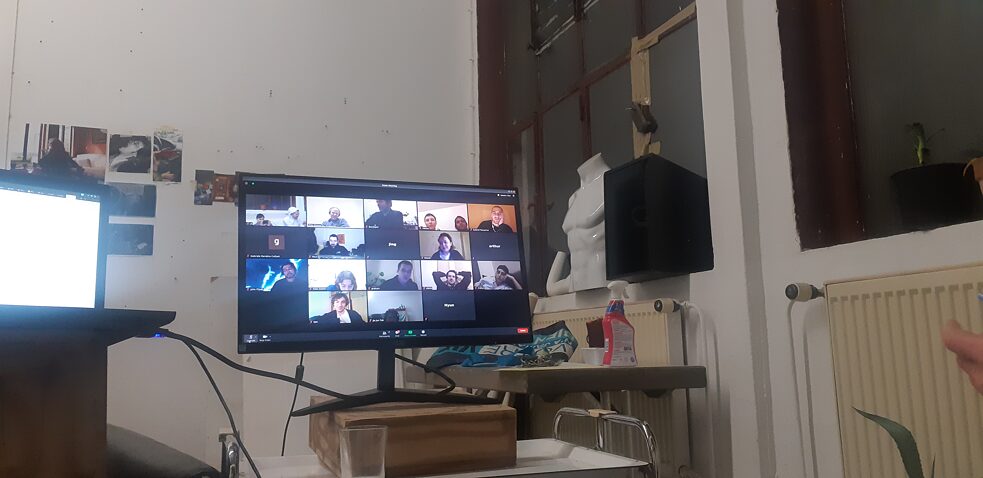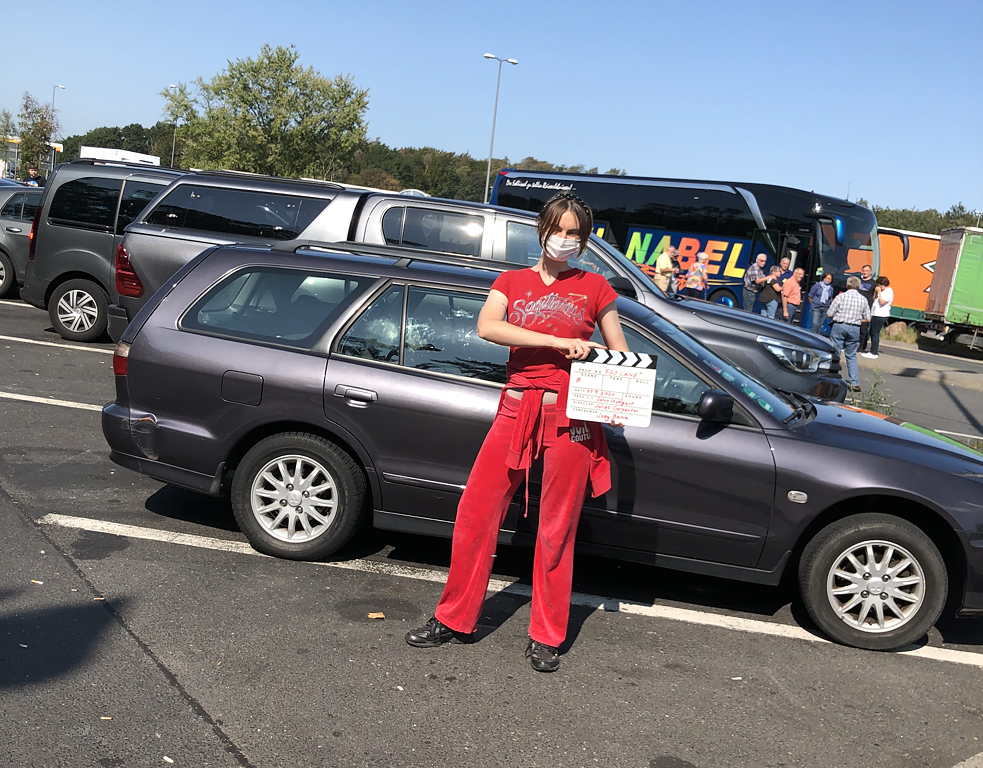Juliet Carpenter
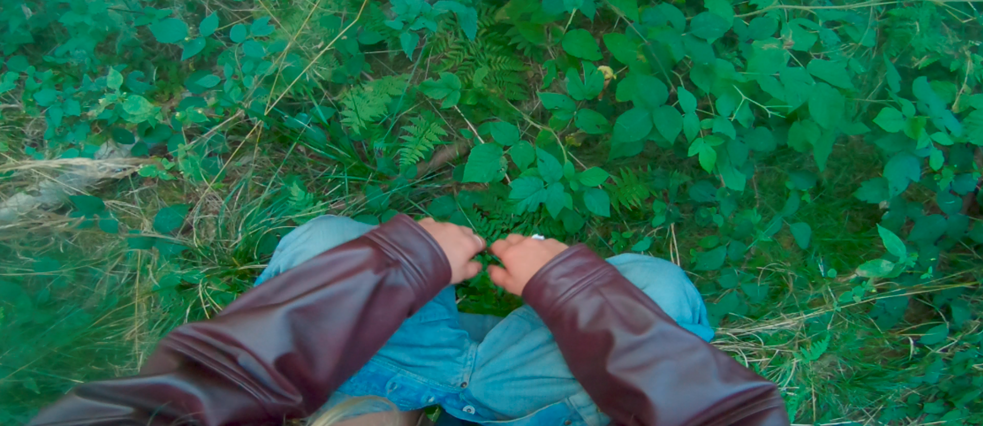
The Goethe-Institut New Zealand and Contemporary HUM present a series of portraits about New Zealand artists who have found a new home - also artistically - in Germany. Curator Cameron Ah Loo-Matamua chats with Frankfurt-based filmmaker Juliet Carpenter.
By Cameron Ah Loo-Matamua
I am speaking to Juliet through the blue glare of my laptop screen. She is speaking from Frankfurt am Main while I am in Tāmaki Makaurau. We have spoken like this for the last four years through differing time zones, places and moods. In this call she has ensconced herself to the side of her bedroom with a cup of tea and one foot up on her chair. It is night for me so the haze of her morning-lit bedroom is harsh. “The main focus is how to make a narrative film in a time where all narratives have been kind of dismantled…” she explains to me. We are speaking about the production of her latest film EGOLANE, while also trying to conjure a cohesive retrospective of these past few years that have been so intensely punctuated by the coronavirus pandemic.
In late 2018 Juliet moved to Germany to take a place in the film class of Frankfurt’s State Academy of Fine Arts, better known as Städelschule, to be taught by artist professors such as Douglas Gordon, Wu Tsang, and Gerard Byrne. Her campus experience, although paced atypically, seems to have been a fuller and more intentional undertaking precisely because of the intermittent waves of lockdowns and course adaptations to virtual delivery–the reality for most students across the globe right now. Like many artists working within this peculiar context her relationship to her studio space and editing room has deepened, however coupled with feelings of isolation and boredom. We speak often on these dual states of productivity and inertia, trying to make sense of them. Juliet relates this to thinking by musician Terre Thaemlitz, also known as DJ Sprinkles, in which she argues for boredom as a necessary part of any listening experience as it allows space for moments of true euphoria to occur. Juliet riffs on this by adding that “...music is able to offer a nonlinear affective experience that is compelling,” and perhaps in ways that traditions of literature or cinema struggle harder to achieve. This felt to me like a true or even optimistic assessment of the last two years and it made me recall what a friend quipped to me recently: ‘...there is no joy without context.’”
Juliet’s remarks are suggestive of her approach to making EGOLANE, commissioned by Berlin gallery, Salon Stuttgart, and which she will also present as part of ‘Rundgang’ Städelschule’s annual student exhibition. The film loosely depicts the story of an unidentified woman travelling alone in an autonomous car, who upon suffering an injury dies within the moving yet driverless vehicle. Her lifeless body, subtly sliding to the rhythm of the car and glistening with a halo of blood, is the first image we see. It is a jarring first encounter, and is coupled with flashes of the character alive, anguishing at an earlier stage in her journey. As is characteristic of much of Juliet’s other work the film offers a harrowing intimacy to its portrayal of varying psychological states, and in this film its effect is amplified by the context of the pandemic in which it is produced. The filmic location of the car becomes a metaphoric space of isolation where the experience of time is marked primarily by the protagonist's emotional journey through feelings of despair, ecstasy, contemplation and boredom, rather than conventional sequencing of significant events. In this way the film performs an affective experience similar to that of our global lockdowns, where time is rendered as an amorphous concept that feels like it has been lost, its usual reliability corrupted by the inability to exit our homes and maintain daily rituals. As Juliet earlier alluded, this rupture to our ritualistic keeping of time becomes a profound phenomena ripe for cinematic exploration.
Juliet has continued to develop her distinct cinematic language throughout her time in Germany, one that is acutely aware of the mechanics of its production and the contexts in which it emerges from. In EGOLANE she revisits the art of the character study, arriving at a work that contains searing allegorical import.
